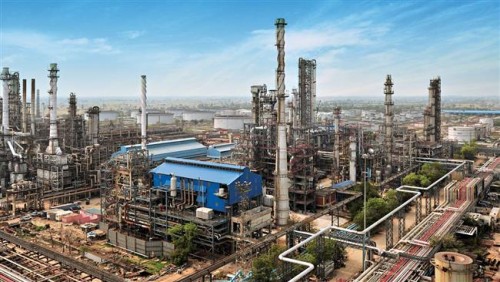Amid continued economic difficulties, Iran has expressed concern over low global oil prices, blaming Saudi Arabia for the situation.
Following implementation of a July 2015 nuclear deal, Tehran has hoped for recovery after years of restricted exports and production. However, a 40% increase in oil sales — taking them close to the pre-sanctions level in 2012 — has been offset by a global price that fell almost 75% since 2013.
The price, above $115 per barrel in summer 2013, dropped to below $30 early this year. It has had a limited rally since then, reaching $46 on Friday.
With the Organization of Petroleum Exporting Countries (OPEC) meeting later this month, Iran is hoping that the price can be bolstered. However, it does not want to be restricted by any limits on production, instead seeking cuts from others.
Deputy Oil Minister Amir Hossein Zamaninia pointed at Saudi Arabia on Saturday, “Naturally, if a country wants to produce at full capacity, there will be no balance in the market.”
Riyadh has insisted that Iran join any initiative for a freeze in production. Zamaninia said Tehran is ready for cooperation but that it has to return to former production levels.
Iran’s exports are now about 2 million barrels per day, compared to a high point of 2.5 million bpd before US and European sanctions took full effect in 2012.
Zamaninia said OPEC countries need to revive a quota system, with an output ceiling of 30 million bpd, which was set aside in December 2011.
Iran Looks to Russia for Support
Bolstering its approach, Iran hosted Algerian Energy Minister Nouredine Bouterfa in Tehran on Saturday.
Iranian media highlighted Bouterfa’s comment, after a meeting with Iranian Oil Minister Bijan Namdar Zangeneh, that a crude oil price of $50 per barrel is “not acceptable”: “OPEC members are trying to reach a price of $50 to $60 per barrel and we have made a request for reaching consensus on a price and coordination among OPEC members in this regard.”
But Bouterfa was cautious about whether Iran could be exempted from a restriction on production or whether Tehran would have to accept the views of other OPEC members: “This depends on Iran’s view. How much consensus would be there, I cannot answer this question and you must ask this from Iranian officials.”
Russian President Vladimir Putin offered some support to the Islamic Republic on Friday:
I think that from the point of view of economic expediency and logic, it would be right to find some sort of compromise….
Iran is starting from a very low position, connected with the well-known sanctions in relation to this country. It would be unfair to leave it on this sanctioned level.
Putin also helped Tehran with the blame of Riyadh: “It wasn’t us who rejected a freeze on production volumes, it was our Saudi partners who at the last minute changed their point of view and decided to take a time out in taking this decision.”

